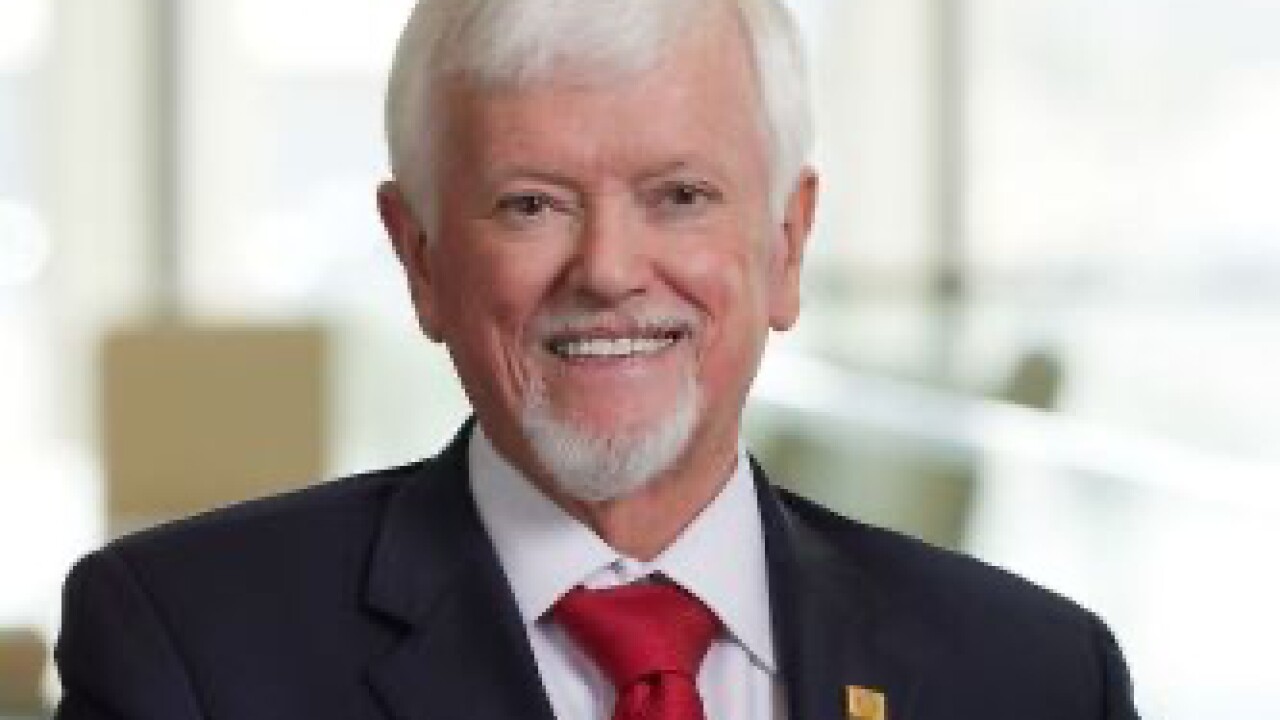WASHINGTON – A House panel vote on a GOP financial reform bill came to a sudden conclusion Tuesday, as Democrats declined to offer amendments to legislation they claimed was too flawed to address.
The bill – which is supported by both the Credit Union National Association and the National Association of Federal Credit Unions – was approved 30-26 by the House Financial Services Committee, mostly along party lines, with the exception of Rep. Bruce Poliquin, R-Maine, who joined Democrats in opposing the measure. (Poliquin is in a tough congressional race in a state that voted Democrat in the last two presidential elections.)
"This bill is so bad that it simply cannot be fixed… let's not waste any more time on this," said Rep. Maxine Waters, the top Democrat on the panel. "Democrats will not offer any amendments, and we move to dispense with this political theater."
Talking to reporters following the vote, Hensarling was critical of Democrats' decision not to offer any amendments during the vote, which had been expected to last at least two days.
"They had every opportunity to offer amendments and they didn't, so they basically just rolled over," Hensarling said. "I am just astounded that a bill that has been out there for two months – the Democrats couldn't figure out one amendment to offer."
The Financial Choice Act was first unveiled in June by Hensarling at the New York Economic Club and also presented to Republican presidential nominee Donald Trump during a meeting that same day. The bill's centerpiece is a measure that would allow banks an alternative regulatory framework, or "off-ramp," from Dodd-Frank requirements and Basel III capital rules in exchange for holding more capital.
But the bill also touches on hot-button issues, including a provision that would repeal Dodd-Frank's Durbin amendment, which capped interchange fees for debit cards, and another provision to reform the structure of the Consumer Financial Protection Bureau.
CU Trades Sound Off
In a letter sent to Hensarling earlier this week, CUNA President and CEO Jim Nussle praised the bill, which he said "would help to relieve some of the regulatory burdens that credit unions currently face so that they can better serve their members."
Still, Nussle observed that the Choice Act provides more relief to big banks than to credit unions
"We believe much more should be done through this or similar legislation to modernize the federal credit union charter with a goal of reducing credit unions' regulatory burden and expanding consumer and small business access to credit unions," wrote Nussle. "While we certainly appreciate your inclusion of provisions that will help in this regard, we encourage you to go much further to provide relief for credit unions. In a bill that makes so many changes to the way banks are regulated, surely there is space to tackle major improvements to the credit union charter."
NAFCU has also spoken out in support of the bill, specifically citing provisions that would roll back Dodd-Frank and repeal the Durbin amendment.
Carrie Hunt, NAFCU's EVP of government affairs and general counsel, pointed out in a letter to Hensarling in advance of the mark-up that the increased regulatory burden brought on by Dodd-Frank has contributed to a 20% reduction in the number of credit unions, almost all of which were institutions with $100 million in assets or less. (NAFCU's letter failed to note that the industry has seen phenomenal membership and loan growth in the last five years as a result of lingering antipathy toward the big banks, though the majority of that growth has been at larger credit unions).
NAFCU's letter specifically praised the Choice Act's proposal to restructure the Consumer Financial Protection Bureau as a five-member board. "Regardless of how qualified one person may be, a commission would allow multiple perspectives and robust discussions of consumer protection issues throughout the decision making process," wrote Hunt.
But NAFCU balked at a proposal to expand the NCUA Board from three to five members, pointing out that such a move "would actually create more bureaucracy and costs for the credit union industry." Hunt praised NCUA's ability to adequately meet the needs of the movement with a three-member board and added that an expansion "could pose new challenges and create uncertainties."
Bad Timing for Hensarling
The timing of today's vote was unfavorable for Hensarling, coming on the heels of a $190 million regulatory action against Wells Fargo last week. Regulators cited the bank after employees fraudulently opened accounts for customers in order to meet sales incentives. The CFPB helped levy the enforcement action, which was championed by Democrats.
"It is amazing that you guys on the other side of the aisle cannot even mention Wells Fargo and what is happening right before our eyes," said Waters, who called the legislation "a rushed, partisan messaging tool." She added, "Why anyone would want to … deregulate Wall Street is beyond me."
But Hensarling noted after the vote that his bill would give regulators the ability to assess higher penalties for financial crimes.
"The bill holds Wall Street accountable with the toughest, strongest, strictest penalties ever – far greater than those in Dodd-Frank. And as recent headlines attest, obviously stronger penalties are needed," said Hensarling in a statement. "Democrats just voted against a bill that increases penalties against those who commit financial fraud."
Repealing the Durbin amendment is also likely to prove a tough pill for lawmakers to swallow. The amendment to Dodd-Frank pitted two influential industries against each other in retail merchants and financial service firms.
Following the vote, a committee Republican staffer called Democrats' decision to cut off debate and move to a vote "unimaginative," noting that they had an opportunity to try and add financial reform initiatives to the bill.
During the hearing, Rep. Joyce Beatty, D-Ohio reiterated Democrats' defense of Dodd-Frank. "I believe this committee should be focusing on how to improve this economy through commonsense banking regulations and supervisions by building up on Dodd-Frank's success, correcting its shortcomings and refusing to settle for anything less," she said.
But talking to reporters, Hensarling said, "I am glad that they will continue to have to defend the indefensible Dodd-Frank" which he said in his opening statement has stymied economic growth.
–Aaron Passman contributed to this report.





